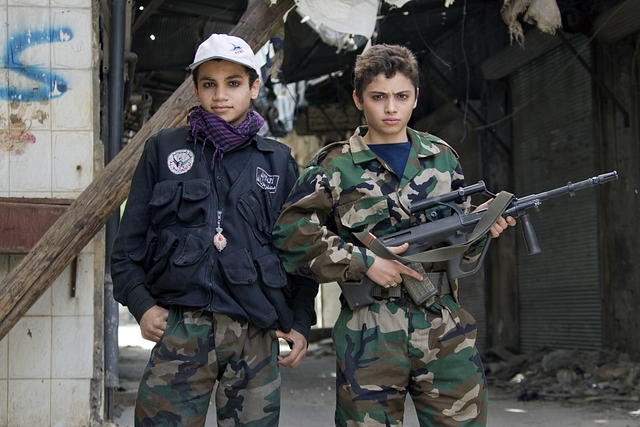
1979: The Year When The World Lost Its Innocence
Whether the ‘Death of Innocence’ is temporary or permanent is hard to say. But the post-1979 world has exhibited evil in proportions that need steadfast counteraction and security. The innocence has gone.
In the late 1980s, Francis Fukuyama floated the idea of “The End of History”. He wrote it as a magazine article which this writer read when it appeared and because of some misconceptions expanded the theme to a full book. The idea was brilliant in parts, unconvincing in other portions, but failed to grasp on the whole the seminality of the end of the Cold War.
Fukuyama was ridiculed initially because his idea of ended History was not understood. He didn’t mean end as the end of historical developments, the termination to history-making as it were. He took it in the philosophic sense, as the end to ideology-driven history. End of History was End of Ideology in his scheme, and the last of the great ideologies, Marxism, had been defeated by Liberal Democracy.
It was a fine understanding of a major event. Its tone of triumphalism inhibited its wider acceptance. Liberal Democracy itself suffered a setback with the 2008 economic crisis; and the lack of clear military victory in Iraq and the lingering war in Afghanistan further dulled Western sheen. Liberal Democracy’s inability to replicate itself in war-torn regions like the Middle East has also rolled back some of the gains of the end of the Cold War.
And yet, even as Francis Fukuyama exhibited a fair political understanding of the collapse of the Soviet Union, he failed to grasp its real meaning. He cannot be faulted. He was too close to the event, saw it as a major new dimension of political philosophy, and was pressed to record it with the best understanding he could marshal in a short time. Nevertheless, the end of the Cold War was a bigger event than anyone fathomed then and does so possibly even today.
Perhaps it was not even the end of the Cold War that mattered as much as events that triggered it. Conclusions would be different in the present if the Soviet Union had survived that era. Since it did not, the trigger becomes all important. The cumulative trigger was the Soviet intervention in Afghanistan in 1979 and the United States’ response with treasure and Saudi Arabia- and Pakistan-backed “mujahideen”. It changed the world.
Francis Fukuyama picks the end years of the 1980s as the turning point for the world. This writer would place it in 1979. As the Old Testament divides the world before and after the Floods, so modern times must be split, in addition to previous partitions, between pre- and post-1979.
The world lost its innocence after 1979. Religion was fused with politics and brought out the worst of both. People stopped being themselves and became increasingly identified with their faith. The results are there to see. The Islamic State might be one of the extreme end products of the 1979 mujahideen experiment.
The loss of innocence post-1979 has impacted the security of states in various ways. All countries have become paranoid about terrorism. America has taken drastic homeland security measures. The Department of Homeland Security is a responsive product of the 9/11 attacks which have roots in 1979.
Freedom of expression does not mean the same thing as it did prior to 1979. Vietnam War agitations in US universities in the late-1960s and early-1970s happened in a phase of innocence. The Emergency for all its horrors was before 1979. 1979 changed the complexion of protests and agitations, and that must be kept in mind when commenting about some recent developments.
The threat to nation states is more real today than at any time in the recent past outside of wars. 1979 and the end of the Cold War have unleashed forces which are difficult if not impossible to control. The war against the Islamic State is straining the energies and resources of the Great Powers in unexpected ways. The resolve to fight terrorism is not as strong as it should be.
It is important in the Indian context to recognize the post-1979 transformation of the world. Reasonable restrictions to free speech in the constitutional enforcement of Fundamental Rights must be more broadly interpreted. There can be no call to narrow the application of sedition law far less seek its repeal. 1979 has profoundly changed the world.
Francis Fukuyama’s “End of History” thesis has a sting which he did not see as one. He celebrated the death of Marxism with the conclusion that man would be fired with freedom without restrictive ideologies. It has left the world as a free floating mess carried this way and that with every gust of wind. It has taken the world backward and regressed it in certain dimensions.
Whether this is temporary or permanent is hard to say. But the post-1979 world has exhibited evil in proportions that need steadfast counteraction and security. The innocence has gone.
The article was first published on Newsnight.